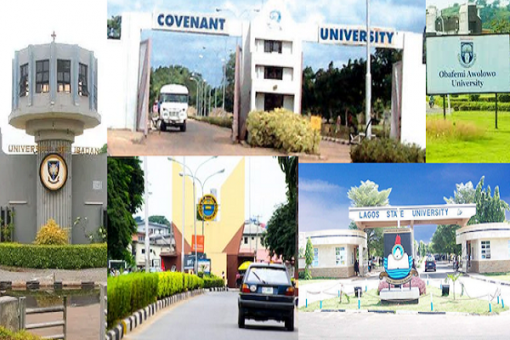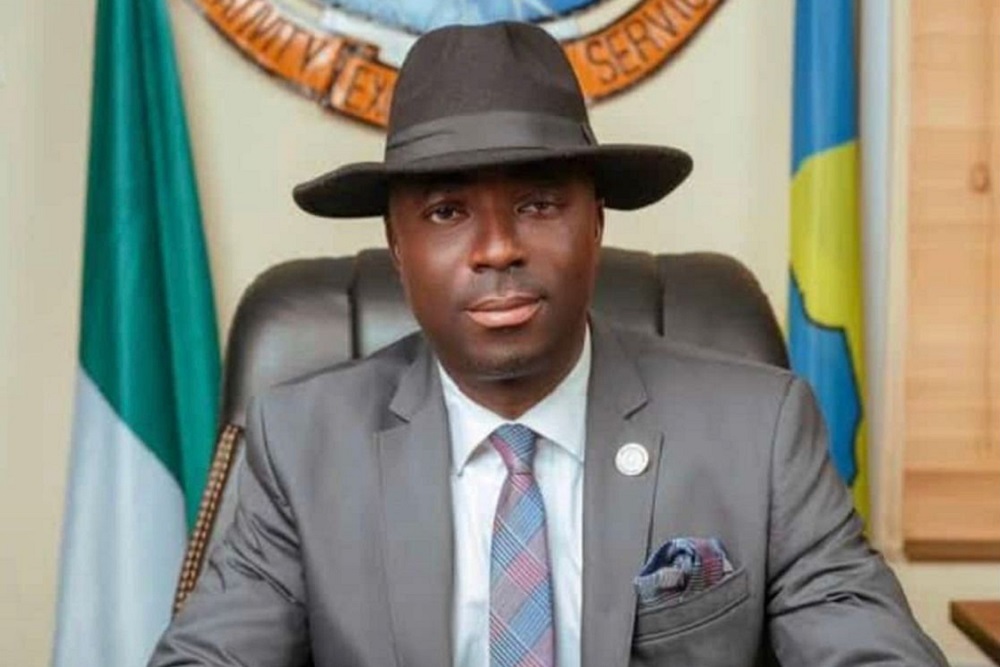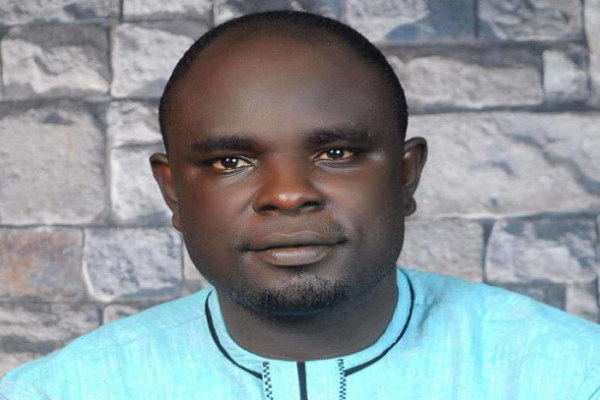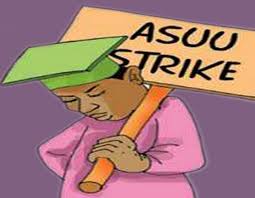The National Executive Council (NEC) of the Academic Staff Union of Universities (ASUU) announced an indefinite strike which came into effect on Monday, August 29, after months of talks with the Federal Government failed to reach a compromise.
The Council has accused the Federal Government of “high-level deceit” since the renegotiation of the 2009 agreement opened in 2017 and ASUU insists it will not call off the strike action until the Federal Government takes concrete steps towards implementing its demands.
These demands include the payment of earned academic allowance, review of the National Universities Commission (NUC) 2004 Act to tackle the proliferation of universities, implementation of 26 per cent budgetary allocation to the education sector, implementation of the University Transparency and Accountability Solution (UTAS), payment of withheld salaries and non-remittance of check-off dues of unions, salary upgrade and the constitution of visitation panels.
In an interview with TheNewsGuru.com (TNG) on Thursday, a senior lecturer and researcher at the University of Nigeria, Nsukka, Dr Kingsley Ugwuanyi, admitted that there is mistrust between ASUU and the Federal Government.
From resource allocation to its utilisation, Ugwuanyi, an expert in English sociolinguistics who is also a consultant to the Oxford English Dictionary, provides an in-depth perspective into what the real issues are and what he thinks might be the way forward. An excerpt of the interview is presented below:
How bad is the funding situation in Nigerian public universities?
You know when people hear about funding, they assume it’s about salaries. No! Salaries are part of it, no doubt. But the key issue is funding infrastructure and resources for teaching and learning. Let me give you an example from a recent experience. In February shortly before the strike, I was teaching a class of nearly 500 students, and for 2 weeks we were looking for a venue that could take all of us, but we couldn’t find one. In the end, we had to share another big hall with another lecture – so two lectures were going on in the same auditorium at the same time. You can’t imagine how chaotic that was. Some lecturers hold their lectures in the stadium or on an open field. Can you imagine that? Let’s not even talk about how our science and engineering laboratories are poorly equipped. Some laboratories in Nigerian universities were last equipped in the seventies – that’s where there are at all.
Nigerian students complain all the time that all most of their lecturers give them are theories. No equipment to demonstrate or apply what they learn. As a senior lecturer, I don’t have an office. I sometimes would want to take my students to the language lab, but there’s no light. Students and lecturers don’t have access to new publications in their field to keep pace with developments in the field. The list is too long!
Should we even talk about salaries? I’ve worked in the university for more than 10 years, and my salary, till today, is about 170 thousand naira. A graduate assistant lecturer, which is the first level for lecturers who are yet to have a Master’s degree is about 100k; for those who have a Master’s degree, the starting salary is about 120k. You know what 100k or 120k can buy in today’s Nigerian market. This is a salary structure that was last reviewed in 2009. The truth of the matter is that every aspect of our university education needs urgent funding intervention, and this is exactly what ASUU is fighting for.
The Federal Government says it has agreed to about 80 per cent of ASUU’s demands. Is this so?
Even though the Minister said that 80 per cent of the demands have been met and that the only outstanding issue is the issue of the payment of salary for the months ASUU was on strike, I want to tell you that that’s not true. Not one demand has been met. The Federal Government said they will not be able to pay ASUU members their salary from March until now because they have not worked and ASUU said No Pay, No Work and that was the point where every negotiation broke down. Another demand of ASUU is that they don’t want to be paid through IPPIS because it does not capture the peculiarities of universities such as lecturers who are on sabbatical leave in other universities or those who take up contract positions in other universities; they want to be paid using UTAS, which is specific to the universities and addresses the shortcomings of IPPIS.
What the Federal Government said through the Minister is that they are promising to grant all of ASUU’s demands, which is really interesting to hear. But one thing they said is that ASUU will have to wait until 2023 when the money will be included in next year’s budgetary allocation, which is what they’ve been saying for years. One of the resolutions ASUU made in February was that once the strike commenced, it would not be called off until the Federal Government implements the agreement, not give more promises. This is still ASUU’s position until this moment. The reason is that the FG has been giving ASUU promises upon promises since 2009 when the agreement was first reached. So ASUU says it’s tired of promises; it wants to see implementation. Action.
If the Federal Government has set up a committee to harmonise the IPPIS and UTAS payment systems and also released the sum of N50 billion for the payment of earned academic allowances, is that not sufficient grounds for ASUU to call off the strike?
If you recall, the Memorandum of Agreement between the Federal Government and ASUU was entered in 2009, that was even before I became a lecturer in 2010, and between 2009 and today, not up to 20 per cent of that agreement has been honoured by the Federal Government. The Federal Government keeps saying we will implement. Then in 2013, there was a renegotiation because the government said what was negotiated in 2009 was not feasible and as a result, they could not implement it. There was six months strike in 2013 because of this. ASUU and Federal Government went back to the table to renegotiate and agreed to start implementation in 2014.
In 2014, the Federal Government didn’t implement as they said and there were short warning strikes because of this in 2014, 2017 and 2019. The issues lingered on until 2020, which led to another long strike in 2020. Again, the Federal Government said the negotiated agreement in 2013 was not implementable and that there was a need for renegotiation. Again, ASUU went back to the negotiation table with the Federal Government and renegotiated, working with the Renegotiation Committee set up by the Federal Government and headed by Professor Munzali Jubrin. Again, the government failed to sign, much less implement, the agreement which was ready in 2021. This is 2022 and ASUU said no, we are tired of endless promises that seem to be the traditional approach of the government. So from ASUU’s relationship with the Federal Government over the years, ASUU can no longer trust the Federal Government to keep its promises and, therefore, ASUU is saying, we cannot work with promises. ASUU is saying that until these demands are met one by one, they can’t go back to the classroom.
Given Nigeria’s economic outlook, would it not be unrealistic for ASUU to expect 100 per cent implementation of the agreement before it calls off the strike?
There is no official document showing that the government has approved even one of ASUU’s demands. Just promises. And remember that whatever the Minister of Education agrees with ASUU will still go back to the executive for approval. And mind you, what the minister is saying is not even an agreement because ASUU was not involved. So if the Minister of Education is saying we will do it, it is still subject to approval. So in the end, the government could come out to say that even though the minister said this is going to be the case, we can’t do it. So there’s no guarantee. Until we see that the government has approved and given specific directives for these demands to be met, ASUU is saying we won’t be able to call off the strike.
It takes a very rigorous process for ASUU to declare a strike or call it off. How ASUU operates is that every decision to go on strike or call off strike is taken at the chapter levels, that is, each university takes the decision and then those decisions would be aggregated at the national level and that would inform the decision of the national leadership.
Given the recurrent strike action, what other funding options can Nigerian public universities explore?
I have taught at two universities in the UK – the University of Northumbria and the University of Newcastle. I did my PhD in the UK as well and it was funded by Northumbria University. So how is university education funded in the UK, for example? Primarily, university education is funded by the government and I’m using the UK example because that’s the one I’m most familiar with. But there are other sources of funding like endowment funds from NGOs, private individuals, alumni, companies, or establishments that have relationships with these universities. Do we have all of these sources of funding in Nigeria? Just a few. In the University of Nigeria Nsukka, for example, there is an endowment fund by Shell Petroleum Development Company (SPDC) in the department of Geology. This is the example I can mention off the top of my head right now, but there are not as many of them in Nigeria as you find in the UK.
Do alumni help in Nigeria? Maybe also to a very small extent, but the fact is that the bulk of university funding in the UK comes from the government. The government has annual grants and allocations to universities and most times these allocations are given according to the research output of these universities. There are also research councils for humanities, social sciences, engineering and medicine that individual lecturers or researchers attached to universities can apply to directly and have their research funded, following clearly stipulated, transparent and often merit-based procedures.
For instance, in Nigeria, there is the TETFUND which should do that, but you know how Nigeria is. I remember applying to TETFUND in 2015 to attend a conference in Germany, I didn’t as much as get a reply, not even a response that my application was not successful. But I knew some other people who got the funding because they know someone in the university administration or someone that works in TETFUND. Nigerian universities must also become more business-oriented. A faculty of agriculture, for example, should be able to produce sufficient food to meet the demands of the area where it is located, and profit therefrom.
How can Nigerian public universities reinvent themselves to produce graduates with the right skill set, who can add value to the system and attract funds from non-government sources?
The quality of higher education in Nigeria is poor by every measurement and what ASUU is saying is that part of what contributes to this poverty is that there are insufficient resources to train the students. If you produce a biochemist, a medical doctor, or an engineer, for example, who has not touched a machine, and you bring the person out to begin to work with machines, the person will not fit in. To tell you that Nigerian graduates are not as poor as painted, every year, Nigerian graduates leave Nigeria in droves for other countries – Canada, the US, UK and they do exceptionally well in those countries. They do well because the resources they can work with are there and they only need slight training to beef up the theoretical knowledge they have already acquired from our Nigerian universities. So Nigerian education is not completely useless.









